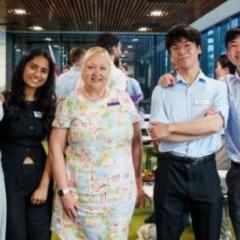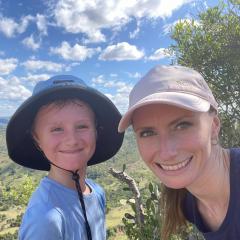Written by UQ Year 1 medical students Rebecca Rathie and Tristan Puhakka
When the veterans of bush medicine speak of their adventures in the outback, they often neglect to mention that getting there is half of it.
Our meticulously planned five hour road trip to Theodore, where we hoped to experience the lifestyle of a rural generalist for a fortnight, hastily turned into a two-day struggle against rain, road closures and flooding. Upon reaching Wandoan, it became apparent that nature had other plans; the once bitumen road had become a flowing river. This river didn’t disappear as we had hoped, but instead, engulfed the surrounding greenery and road. For us, this was a tragedy, but for the locals stuck in Wandoan, this was a good enough reason to split a few cold ones at the local and mingle with the out-of-towners. After hours of back-tracking, we had set up for the night with some family friends in Chinchilla, who were more than happy to put their country hospitality on for show.
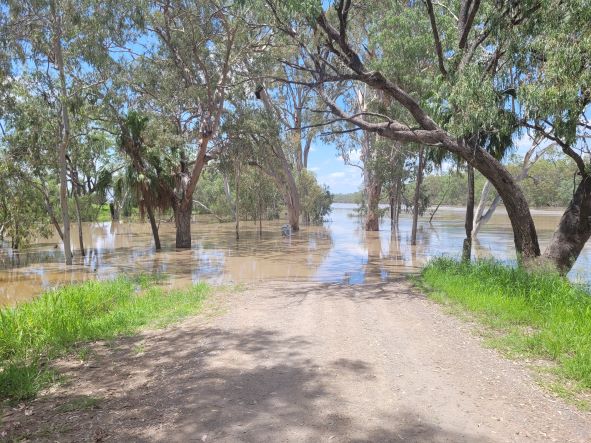
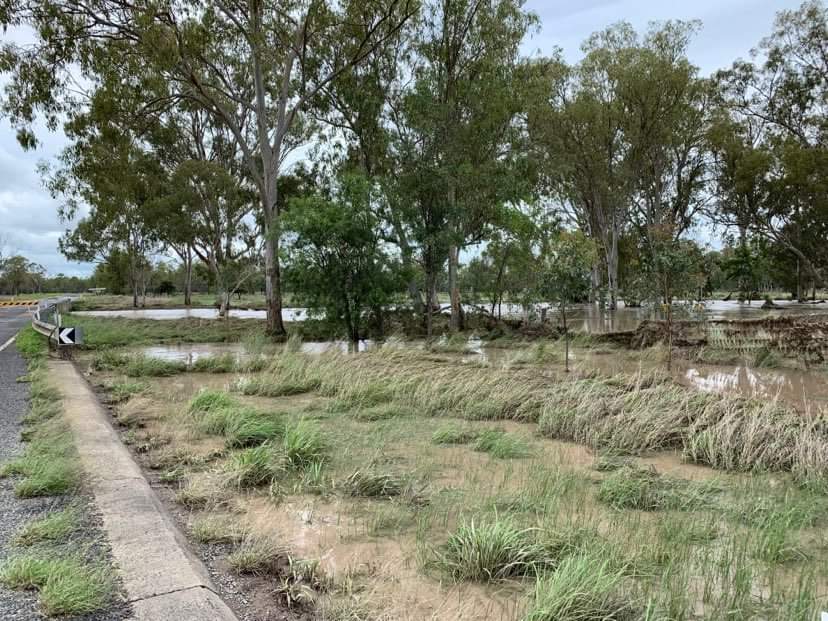
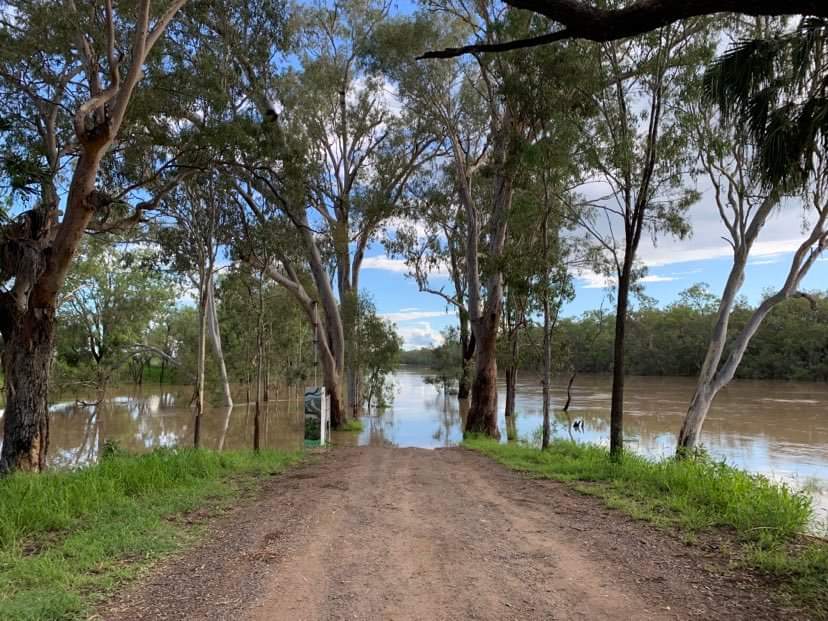
Come morning, we’d become pros at interpreting rain gauges, river height maps, and weather radars. With guidance from the locals and wonderful staff at Theodore medical, we realised that we only had a narrow window at which we may be able to cross the flooded roads before the rain came and ensured they stayed as rivers for the rest of the week. The road signs blocking our way stood firm, the clock was ticking, but the Theodore staff were well connected people; everyone knows everyone out there. We then got a surprise call from the Banana Shire council saying that a police escort would be arranged. Not many people can say they’ve had 100% of the local police force as an escort. Okay, there was only one police officer in Wandoan… but statistics don’t lie. It wasn’t until we realised that the well-connected staff of Theodore Medical had pulled some strings with the council to escort us ‘medical professionals’ across flooded waters. We truly appreciated the influence and respect Dr Chater and his team had earnt out west.
There was only one problem with this masterfully crafted plan. Neither of us had any experience driving through water, and our delicate ‘city kid’ hands were so sweaty that merely gripping the steering wheel was a challenge. With the local police force leading the way, we made it through. It was only when the officer said “now the next one is all yours” that we realised we weren’t in the clear just yet. A mere hour away from our destination we were faced with another submerged part of the road, but by applying the policeman’s calm and collected approach, we made it through. Before we knew it, we were greeted by the signature palm trees of Theodore and the smiles of the people.
These experiences didn’t stop, as we shifted from the roads to the spotless halls of Theodore medical centre and hospital. Ward rounds, patient consults, learning practical skills from the nurses and forever battling with the computer software have all been invaluable experiences that we will remember and utilise for the rest of our professional and personal life. The doctors’ genuine compassion and desire to help those that walk through the surgery doors is a trait much to be desired. We have seen first-hand the significance that rural generalists can have on such a large number of people.
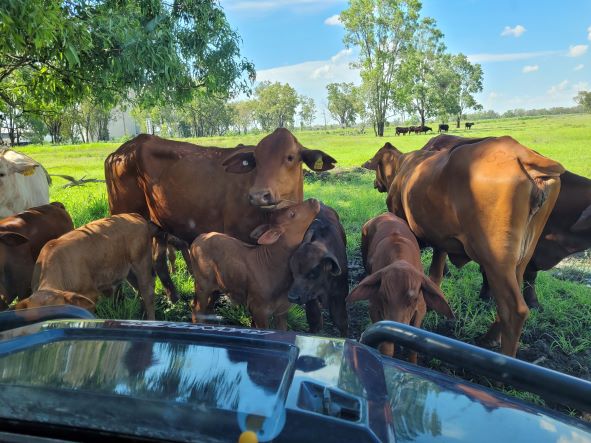
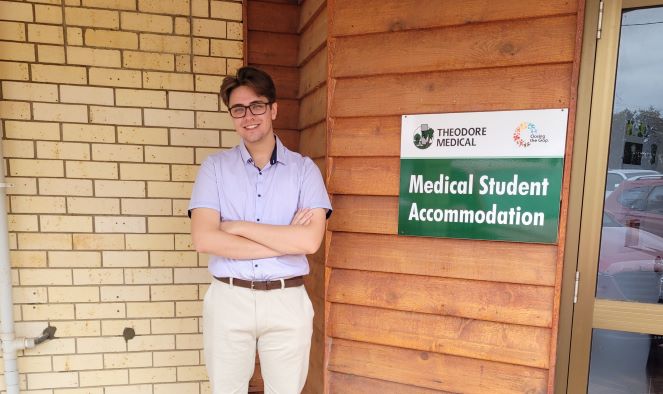
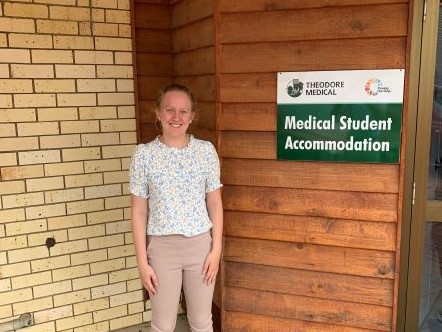
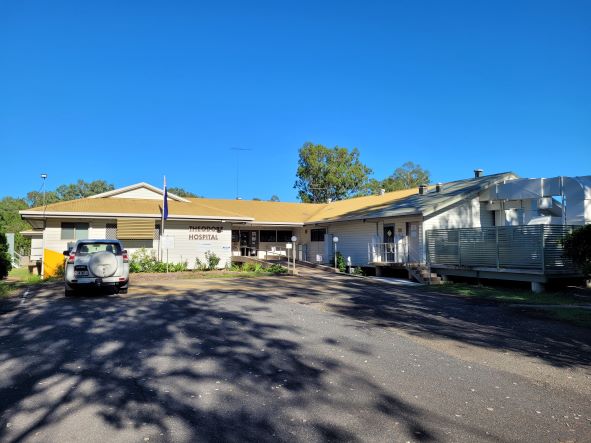
This journey was a profound eye opener for us; in the city, the weather had never influenced our movements, but out in the bush, your every move was dictated by the weather. It also highlighted the importance of having dedicated health professionals residing in the bush. When disaster strikes and communities find themselves in tough times, you need a ‘jack of all trades’ doctor to not only provide medical expertise, but to advocate for our rural communities.


